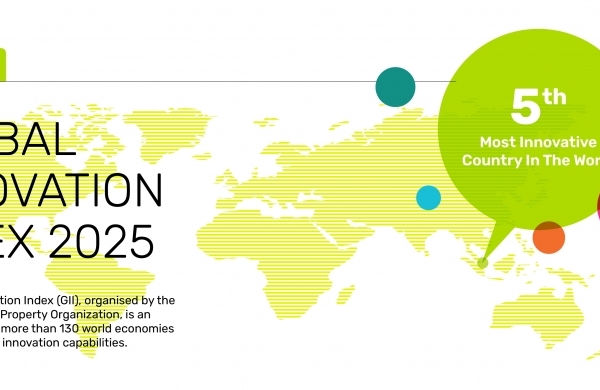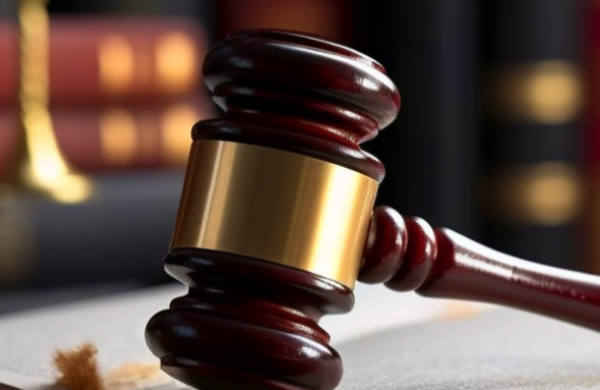Did not receive verification mail? Please confirm whether the mailbox is correct or not Re send mail

IPR Daily
- 2022-04-28 17:08:34
The Metaverse and Its IP Implications – It is still a "Wild, Wild West" out there-Part 1
Please be noted that this article is the first part of the report, the second part could be seen here.
The topic of the Metaverse has generated a great deal of enthusiasm and debate in recent months. For example, Facebook changed its name to "Meta" with lots of fanfare. In another headline, Nike purchased an NFT (non-fungible token) designer company, RTFKT Studios, and appeared ready to use virtual athletic shoe NFTs to generate exposure, as well as to begin selling virtual shoes. Also, a personal injury law firm in New Jersey decided to open an office in Decentraland, claiming to be the first-ever personal injury law ?rm in the Metaverse.
Even more recently, as of the week of 2 February 2022, a major law firm is opening a virtual o?ce in the Metaverse in the fashion and retail district of browser-based 3D platform Decentraland.[1][2] It is the first major law firm to open in the Metaverse.
Law.com describes the Metaverse as "the combined network of 3D virtual worlds in which people work, play and socialize." Increasingly, retail brands and some business services firms are buying property there. During the same week, for example, a major Wall Street bank became the first big bank to open in the Metaverse by opening a virtual lounge.[3]
The Metaverse still seems to mean different things to different people. And all of these different meanings could all be correct, just like four visually impaired people trying to describe an elephant based on what they touch and feel. Nevertheless, the Metaverse could refer to a virtual world where the users or citizens could do everything they could do in the real world, plus more. The Metaverse first appeared in a 1992 novel by Neal Stephenson, entitled "Snow Crash." In that novel, each user has a first-person perspective and can participate in the Metaverse through a digital personality, i.e. avatar. A key characteristic of the Metaverse is that each user is an active participant, not just a passive observer. Each user can actively live, work, play, socialize, create and trade in the Metaverse, just as he or she can do in the physical world.
While its arrival means more opportunities and novelties for people, the Metaverse could also guarantee that almost all issues and challenges in the real world would reappear in the Metaverse. What makes this scenario even more "challenging" is that there currently is no governmental or regulatory system within the Metaverse to uphold justice or to prevent abuse. It is still a "Wild, Wild West!"
Matthew Ball, a leading Metaverse expert, has sketched out a basic definition for the Metaverse,[4] where:
"[T]he Metaverse is a massively scaled and interoperable network of real-time rendered 3D virtual worlds which can be experienced synchronously and persistently by an e?ectively unlimited number of users with an individual sense of presence, and with continuity of data, such as identity, history, entitlements, objects, communications, and payments."
Let us digress a little here, so that we can refresh what we remember about IP, or intellectual property. IP refers to the body of rights designed to protect inventions, creativity and consumers. IP typically refers to the body of legal protection under patents, copyrights, trademarks and trade secrets. There has been signi?cant experience accumulated in terms of understanding and handling IP implications in the real world. For example, companies like Apple or Samsung want to protect their innovation vis-a-vis a third-party infringer. Nike also wants to protect its trademark, or brand, in the eyes of its consumers. Further, authors and designers wants to secure copyright registration and protect their creative work.
Without a doubt, the Metaverse will usher in many new technologies and applications, which will have this "shock and awe" effect on all of us. At the same time, what will enable the Metaverse may at this time appear nothing out of the ordinary, beyond increasingly powerful technology and more content. Nevertheless, we can try to anticipate some IP implications based on the "Ball Framework" as follows:
Hardware: This category includes physical technologies and devices that enable us to access and experience the Metaverse. For any technologist, what jumps out is the potential innovations in VR/AR/MR headsets, mobile devices, wearable electronics and haptic gloves. Aside from the consumer side, there is enterprise hardware, such as the technology infrastructure needed to operate the VR/AR environments, and cameras and tracking systems. Such consumer and enterprise hardware are constantly being invented and upgraded to meet the demands of an environment that requires increased processing speed, sensitivity, quality and connection. And naturally we will expect to see many potential innovations in this area, where factors such as access, look-and-feel, sensation, experience, spontaneity, and losslessness will be the key metrics.
One example can be found in Google's Project Starline, a hardware-based kiosk designed to make video conversations feel like you’re in the same room as the other participant. This technology is powered by a dozen depth sensors and cameras, as well as a fabric-based, multidimensional light-field display and spatial audio speakers. Each one, at a generic level of technology complexity, has already been developed and is generally within reach of those in the field.
As can be appreciated, the technological innovations will call for innovative companies to secure patent rights or implement trade secret protection for their ideas and investment and keep their competitors at bay. Trademarks and brands can also be leveraged to set themselves apart from a sea of mediocre products. The moment when a VR headset becomes successful, others would quickly copy it and infringe on the IP.
Source: blogs.duanemorris.com
Editor: IPR Daily-selly
- I also said the two sentence
- Also you can enter 140words
 TOP IPR U.S. Lawyers 10 & Firms 10 Selection Officially Launched by IPR Daily
TOP IPR U.S. Lawyers 10 & Firms 10 Selection Officially Launched by IPR Daily WIPO Global Innovation Index 2025: China Enters Top 10
WIPO Global Innovation Index 2025: China Enters Top 10 Singapore ranks 5th in the 2025 Global Innovation Index; climbed two spots in Innovation Outputs
Singapore ranks 5th in the 2025 Global Innovation Index; climbed two spots in Innovation Outputs Federal Circuit lacks jurisdiction over award that doesn’t raise issue of patent law
Federal Circuit lacks jurisdiction over award that doesn’t raise issue of patent law


